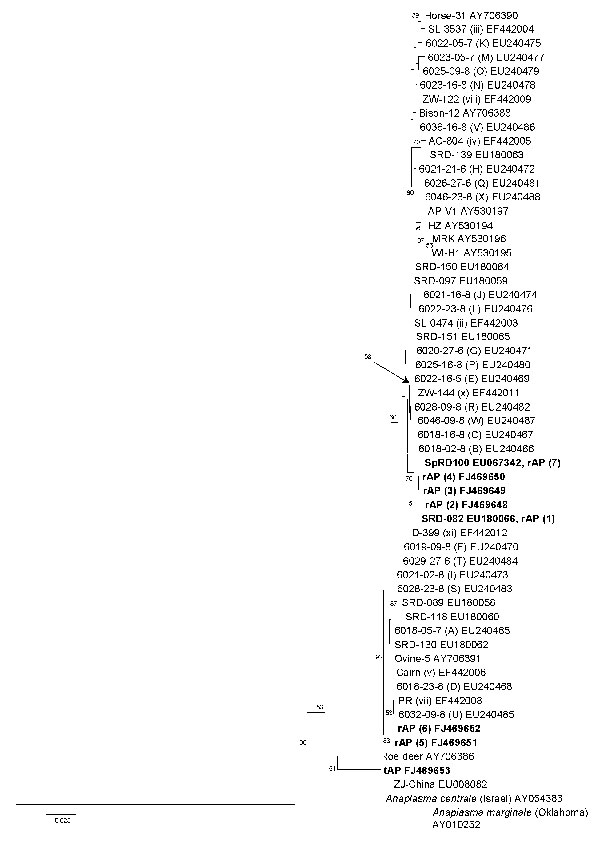Volume 15, Number 12—December 2009
Research
Delineating Anaplasma phagocytophilum Ecotypes in Coexisting, Discrete Enzootic Cycles
Figure 3

Figure 3. Phylogenetic tree inferred from alignment of Anaplasma phagocytophilum msp4 sequences obtained in this study or available from GenBank. Inference was made by using the neighbor-joining algorithm. The stability of proposed branching order was assessed by bootstrapping (1,000 replicates). At nodes present in >50% of replicates, the percentage of replicates possessing the node is indicated. The GenBank accession numbers of the new msp4 sequences obtained during this study (in boldface) are included in the strain designations. rAP sequence types were detected in questing Ixodes ricinus ticks and roe deer, and the tAP sequence type was detected in voles. Scale bar indicates nucleotide substitutions per site.
Page created: December 09, 2010
Page updated: December 09, 2010
Page reviewed: December 09, 2010
The conclusions, findings, and opinions expressed by authors contributing to this journal do not necessarily reflect the official position of the U.S. Department of Health and Human Services, the Public Health Service, the Centers for Disease Control and Prevention, or the authors' affiliated institutions. Use of trade names is for identification only and does not imply endorsement by any of the groups named above.